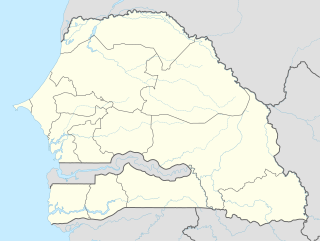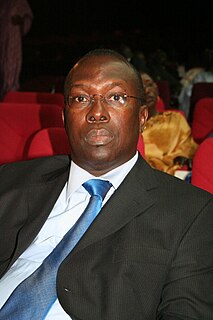Notre Histoire
L’histoire de la poste sénégalaise coïncide avec celle de la conquête coloniale, pour avoir servi d’outil indispensable pendant cette période. Il n’existait pas de service postal organisé avant l’arrivée des colonisateurs. L’échange des nouvelles se faisait par des piétons ou des cavaliers et le plus souvent, ils étaient aux services des Rois et des Chefs de provinces.
Avant, la transmission de messages importants sur courtes distances se faisait à l’aide de Tambour ou de Tam-tam. Et il s’agissait d’annoncer des événements tels que les mariages, les naissances, les baptêmes, les décès, les attaques d’ennemies, les préparatifs d’une expédition militaire.
A l’époque de la conquête coloniale, un système de communication plus rapide s’imposait.
Et pour les souverains, communiquer entre eux ou avec leurs sujets éparpillés à travers le pays devenait de plus en plus nécessaire.
Des lors, ils disposaient dans leur cours d’un service épistolaire chargé des correspondances.
Des personnes, maîtrisant les langues arabes, françaises et autres langues africaines, étaient à la charge de ce service qui, de plus en plus avait l’allure d’un service postal. On peut réellement parler de courrier postal au Sénégal qu’à partir de 1626. Année qui marque le début des relations postales entre le Sénégal et la France. En 38 ans les premiers vaisseaux et bateaux de l’association des marchands de Dieppe et de Rouen auront fait le transport de courrier postal entre les deux pays.
En 1758, cette association sera remplacée par d’autres compagnies notamment, celle des Indes qui se chargera du transport du courrier postal entre l’Europe et la Côte Africaine.
En 1781, le Sénégal fut occupé par la France. Les relations entre la métropole et sa colonie s’intensifièrent.
En 1850, le service postal connût une nouvelle organisation, et en 1851, le courrier postal entre Gorée et St Louis est confié à de simple gens qui traversaient le fleuve et la mer à l’aide de pirogue.
1855 marque le début de la conquête de la colonie sénégalaise par Faidherbe, colonie qui jusqu’alors ne se composait que de rares comptoirs. Un service postal réservé à la correspondance officielle devint nécessaire. On songea ainsi à placer des lignes télégraphiques à travers tout le pays.
C’est en 1879 que le Sénégal connût une vraie organisation postale quasi identique à celle de la France.
En 1900 le service postal était au summum. Les principaux centres étaient tous reliés entre eux et au chef lieu, d’où l’existence d’un réseau télégraphique couvrant presque toute la colonie.
Les moyens de transport par voie terrestre, maritime et fluviale s’offraient au service des postes. Et dans les zones dépourvus de fleuve, de mer ou de chemins de fer, on recrutait au niveau des villages un coursier postal piéton.
Les différents Directeurs Généraux depuis 1962
-Ibrahima Ndiaye DG OPT de décembre 1962 à janvier 1973
-Ndaraw Cissé DG OPT de janvier 1973 à juin 1976
-Mahady Diallo DG OPT de juin 1976 à novembre 1978
-Assane Ndiaye DG OPT de novembre 1978 à novembre 1983
-El Hadj Malick Sy DG OPT/OPCE de novembre 1983 à juin 1987
-Serigne Ahmadou Camara DG OPCE de juin 1987 à décembre 1993
-Ibrahima Sarr DG OPCE de décembre 1993 à mai 2000
-Iba joseph Basse DG La Poste de mai 2000 à Août 2004
-Mamadou Thior DG La Poste août 2004 a Décembre 2013
-Siré Dia DG La Poste Janvier 2013
Notre VISION
Le secteur postal est perçu comme un accélérateur du développement inclusif et une composante essentielle de l’économie mondiale.
Compte tenu de la rapidité des changements qui affectent le monde et eu égard à nos atouts fondamentaux, la vision de l’UPU est plus que jamais d’actualité. Grâce à son rôle mobilisateur dans l’accélération du développement du secteur postal, l’Union, par ses efforts et son dynamisme, contribue au développement de l’économie mondiale.
Cette vision reste à notre portée. Le secteur postal mondial prend conscience de l’intérêt d’innover. De son côté, le monde reconnaît l’important potentiel du secteur postal pour contribuer à renforcer l’avenir de l’économie mondiale.
La vision n’est réalisable que si elle est associée à un engagement réaffirmé envers la mission de l’UPU. La mission suit une approche globale pour appuyer les priorités et les besoins de chaque pays et région; elle englobe les domaines fondamentaux dans lesquels l’UPU peut contribuer à exercer une influence concrète et notable sur les clients dans le monde.
Notre MISSION
«Stimuler le développement durable de services postaux universels de qualité, efficaces et accessibles, pour faciliter la communication entre les habitants de la planète en:
- garantissant la libre circulation des envois postaux sur un territoire postal unique composé de réseaux interconnectés;
- encourageant l’adoption de normes communes équitables et l’utilisation de la technologie;
- assurant la coopération et l’interaction entre les parties intéressées;
- favorisant une coopération technique efficace;
- veillant à la satisfaction des besoins évolutifs des clients.»













